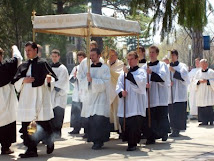The relationship between catechesis and religious education continues to be a problem, especially for persons educating within church structures. While all seem to agree that catechesis and religious education are not the same and should not be confused, not all agree on the relative merits of each category (Warren, 1981, 379). This article explores, particularly from a catechetical angle, some ways that catechesis and religious education can enrich each other.
Warren describes five aspects of catechesis: catechetical tradition as a tradition plus four features of catechesis—its being a work of the community, its framework of pastoral ministry, its celebrative mode, and its occasional character (Warren, 1981, 381). With regards to the catechetical tradition Warren affirms there is a special sense in which persons with a catechetical perspective have only in fairly recent times self-consciously appropriated that tradition. I would have to agree with that statement, due to the entire context within this required reading and of course other discussions. History or tradition should not be negated but embraced within the confines of instruction. Hence, the listener/student receives the “full” value of the context.
Warren continues with his understanding that catechesis is further enriched by specific challenges to give a better account of itself and to clarify its principles. One of the most persistent of these challenges is the accusation that catechesis is undertaken in an atmosphere of un-freedom. For example, the very fact that catechetical thinkers find in socialization theory a helpful social science model to explain the comprehensive nature of catechesis makes it all the more suspect to those who see in the very concept of socialization overtones of manipulation (Warren, 1981, 388). I would have to agree with Warren. People need to understand in order to build upon one aspect, other venues could and should be utilized.
Christian Education
"Since all Christians have become by rebirth of water and the Holy Spirit a new creature(8) so that they should be called and should be children of God, they have a right to a Christian education. A Christian education does not merely strive for the maturing of a human person as just now described, but has as its principal purpose this goal: that the baptized, while they are gradually introduced the knowledge of the mystery of salvation, become ever more aware of the gift of Faith they have received, and that they learn in addition how to worship God the Father in spirit and truth (cf. John 4:23) especially in liturgical action, and be conformed in their personal lives according to the new man created in justice and holiness of truth (Eph. 4:22-24); also that they develop into perfect manhood, to the mature measure of the fullness of Christ (cf. Eph. 4:13) and strive for the growth of the Mystical Body; moreover, that aware of their calling, they learn not only how to bear witness to the hope that is in them (cf. Peter 3:15) but also how to help in the Christian formation of the world that takes place when natural powers viewed in the full consideration of man redeemed by Christ contribute to the good of the whole society.(9) Wherefore this sacred synod recalls to pastors of souls their most serious obligation to see to it that all the faithful, but especially the youth who are the hope of the Church, enjoy this Christian education."
Gravissimum Educationis
Gravissimum Educationis
Thursday, March 19, 2009
Subscribe to:
Post Comments (Atom)




































No comments:
Post a Comment